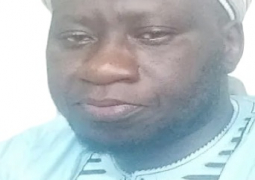
Under German laws, suspects who manifest signs of mental disorder or sickness are usually treated at psychiatric facilities instead of prisons.
On 30 October this year, Mr Sainey Jabbie posted on Facebook about the death of a Gambian migrant in Germany. The young man reportedly hanged himself after allegedly receiving information about his repatriation from Germany – some say back to The Gambia, others said to Italy where he was registered as first point of entry to Europe.
The reaction generated by this post online was enormous. Some blame the government for accepting to cooperate with Europe over the deportation of Gambian migrants to Banjul. Others see this young man’s death as caused by trauma which has become a common phenomenon among migrants across Europe.
One Isa Jarb, in the comments that followed, said "Blame the corrupt government and the people in [The] Gambia with bad attitude [sic], who are so selfish that they deserve the poverty and that’s why this young man would rather die than go back. Rip my bro"
Sering Abdouhadir Sarr denied the death was a result of suicide. “Fake information,” Mr Sarr wrote. “He did not kill himself because of deportation… one of my boys staying with him in the same city said he (the victim) have [sic] papers of Italy. So, stop your fake information,” he added.
And so, the exchanges went on. Some very personal, others very objective. More were really emotional, with blames and insults against others. Even as the coroner began work to probe the real cause of death – suicide or murder – conclusions were already drawn online.
Earlier, one Ebraima Dibba was also found dead on the streets in Germany. Foul play was suspected from among his Gambian peers. Again, Facebook comments and posts were wild.
The good thing that came out of these was some trying to raise funds to repatriate the body back to Banjul. Others went on Facebook live while a scuffle ensued between some Gambian youths and Dibba’s alleged killers, over what was allegedly monies owed from sale of some things. Arrests were made of his suspected killers within a short period.
What many did not know about the situation of so many migrants in Europe in general or Germany in particular, is that psychiatric problems are on the increase among them.
Crime and public nuisance
The key reason for some negative perceptions against Gambian migrants in several German cities has to do with crime. This year, Germany alone saw up to eight cases in which Gambians were accused of murder or homicide.
According to Police statistics, the majority of criminal acts in which Gambian migrants are involved revolves around drug dealing and physical injury, using public transport without a valid ticket, and theft.
Regarding brutality, a German newspaper reported that substantial number of physical injuries in fact happened among Gambian migrants themselves. This “high brutality” among fellow Gambians might also be caused by the dire living conditions of some as Police Officer confessed in the said media reports this week.
Many migrants live in shared accommodations with no privacy.
According to an analysis by the German think tank “ifo-institut”, chances of criminality among Gambian asylum seekers are higher compared to other migrant nationalities.
When it comes to the severity of the criminal activities related to drugs, a police officer from Freiburg in Baden Wurttemberg, however, analyses that Gambian migrants, in contrast to public perception, are not the core problem in drug criminality, as they are mainly involved in petty dealing rather than organised crime. Many of those who deal with the drugs are consumers themselves, Freiburg police observed.
The Psychiatric Hospital in Emmendingen town in Baden Württemberg region is an example of where Gambian migrant admissions have been surging in recent years. It receives cases from that whole region, not just the town of Emmendingen.
This hospital has been distinct for admitting convicts or those in Police custody who manifest signs of mental problems, disorder or other mental-health problems.
Whenever a Gambian migrant patient is admitted, a Senegalese therapist, Mr. Doudou Sidibe, who works in a unit called 'forensic psychiatric clinic' is called in to translate conversations between doctors and patients.
When Mr. Sidibe arrived in Germany in 2013, there were very few African migrants in that town. One could walk for hours on the street without meeting any African migrant. Today, the numbers are very high.
But Doudou, as many Gambian and Senegalese migrants fondly call him, has also become concerned about such a surge in number of migrants from both Gambia and Senegal. A good percentage of these cases are due to post-traumatic disorders. But there are others that are due to drugs and they are many, too.
“The main causes for these cases include the violence many migrants experienced enroute Europe, especially in Libya (where many had experiences of war for the first time, kidnappings, trafficking and others sold into slave-like works without any pay). These impacted lives of many even after they made it across the sea into Europe,” Mr Sidibe explained.
From conversations with these patients, their trauma come as a result of the sea journey they underwent to reach Europe. Sometimes, hallucinations as a result of drugs intake causes instilled fear of police or law enforcement chasing them even when that is not the case mostly. Such also lead to such trauma.
“Isolation without families or friends to interact with (especially when you are residing in migrant camps) can so contribute to this. Others smoke hard drugs that also contribute to their sickness. Once addicted to these intakes, it leads to psychiatric issues,” Sidibe Explained.
“Imagine coming from peaceful and nice families in countries like The Gambia or Senegal, but having to undergo such experiences enroute to Europe? It breaks a lot of migrants here,” he explained.
Read Other Articles In Headlines





